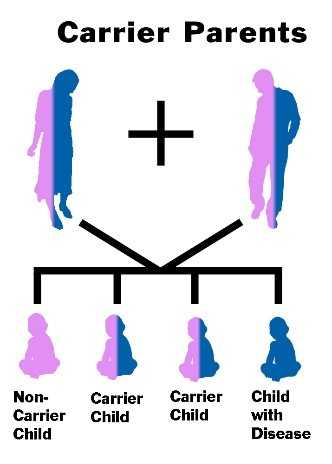Family Health History During Pregnancy

Expecting a baby? You might be wondering whether your baby will have mommy’s eyes or daddy’s dimples. But your baby will inherit much more than that. Learn about both parents’ family health history to give your baby the best start possible. If either of you have a family health history of a birth defect, developmental disability, newborn screening disorder, or genetic disease, your baby might be more likely to have this condition. Knowing if your baby is more likely to have one of these conditions is important so that you can find and address potential health problems early.
Based on your family health history, your doctor might refer you for genetic counseling. Other reasons for genetic counseling include having had
- Infertility (trouble getting pregnant),
- 2 or more miscarriages,
- A previous pregnancy or child with a genetic disease or birth defect, or
- A baby who died at less than 1 year of age.
After genetic counseling, you might decide to have genetic testing. Results from these tests might help you know if your baby could have health issues.
Carrier Screening

Parents can have a baby with a genetic disease even though neither parent has it. Babies inherit two copies of each genes, one from each parent. For some genetic diseases, the baby will only have the disease if both copies of the gene related to the disease do not work properly. In cases like these, each parent has one copy of the gene that works properly and one that does not. If the baby inherits both non-working copies of the gene, the baby has the disease. Thus, the parents are “carriers” for the disease, meaning that they don’t have the disease themselves but can have children with it.
If a genetic disease runs in your family, you might be a carrier for that disease. Likewise, you might be a carrier for genetic diseases that are more common in your racial or ethnic group. Examples include sickle cell disease in blacks and Tay-Sachs disease in Ashkenazi Jews and Eastern Europeans. Your doctor might ask if you want to have screening, called carrier screening, to check if you are a carrier for diseases that are more common in your racial or ethnic group. Talk to your doctor if you want to know about carrier screening for genetic diseases that run in your family. In addition, current recommendations state that all women should be offered carrier screening for cystic fibrosis.
If the results show that you are a carrier for a disease, the other potential parent would also need to have carrier screening to know if you could have a baby with the disease.
1 Recommendations are from the American College of Obstetricians and Gynecologists and the American College of Medical Genetics
Family Health History Checklist: During Pregnancy
□ Gather family history information before seeing the doctor.
□ Use the US Surgeon General’s online tool for collecting family histories, called “My Family Health Portrait.”
□ Tell your doctor if you have family members with genetic diseases, chromosomal abnormalities, developmental disabilities, birth defects, newborn screening disorders, or other problems at birth or during infancy or childhood, especially if you have had a previous pregnancy or child affected by one of these conditions.
o Talk to those family members, if possible, to find out their specific diagnoses.
o Ask for a copy of their genetic or diagnostic test results, if any, to share with your doctor.
□ Alert your doctor if you have had a previous preterm (early) birth, miscarriage, stillbirth, or a child who died from sudden infant death syndrome (SIDS).
□ Follow your doctor’s recommendations. For example, if you have had a previous pregnancy or child affected by spina bifida or anencephaly, your doctor might recommend that you take a higher than normal dose of the B vitamin, folic acid, during pregnancy.
- Page last reviewed: August 29, 2016
- Page last updated: August 29, 2016
- Content source:


 ShareCompartir
ShareCompartir